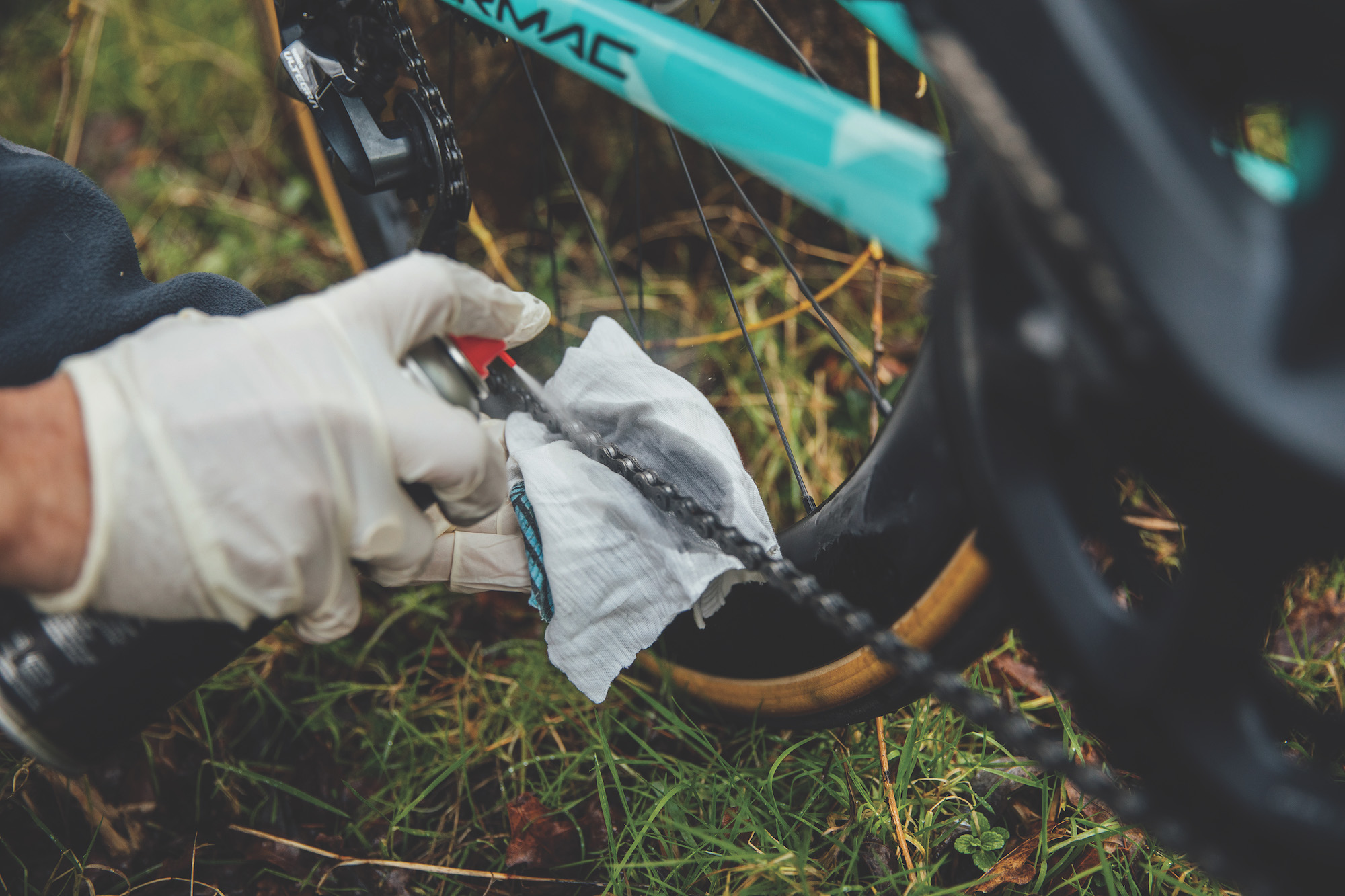Can bike degreaser ever be environmentally friendly?
Eco-friendly cleaning products are worth buying but how you use them also counts


Rewind 30-odd years and I remember asking my cycling peers how best to rid my chain of the black gunk that seemed to encase it, my frame and if you’d asked my mother, pretty much all my cycling kit. Without hesitation, each replied either petrol or white spirit. So for a long time I used to keep a jar of white spirit in the shed for the sole purpose of dunking my chain in once a week. It certainly was effective but even then I knew it wasn’t good for the environment.
Leap forward to today and cyclists are a much better informed group. The environmental impact of our passion is something most of us are aware of and (hopefully) do as much as possible to mitigate any untoward damage. Making informed choices in the products we use and the way we clean our bikes is one of the most obvious areas we can make a difference.
As mentioned above, the products we use to undertake the hardest cleaning jobs, degreasers, can be the biggest culprits for environmental misdemeanours.
As most of us can attest, oil, grease and other contaminants form a barrier that water and normal cleaners cannot clean effectively. An effective degreaser needs to utilise solvents that can break down and clean this type of water-insoluble mess.
A solvent is simply a liquid that dissolves a solute. Water, for example, is a solvent but it can only dissolve certain types of compounds. In order to deal with grease
and oil-based grime, we are talking about solvents based around organic compounds such as ethanol and other effective but harmful solvent molecules.
>>> Can bike degreaser ever be environmentally friendly?
Get The Leadout Newsletter
The latest race content, interviews, features, reviews and expert buying guides, direct to your inbox!
How do solvents affect the environment?
Solvents that utilise hydrocarbons such as paraffin and kerosene might be the most effective choice for getting the job done but can have a significant negative environmental impact. These types of organic solvent react in the atmosphere in sunlight, producing an air pollutant known as ‘ground-level ozone’. High concentrations of ground-level ozone seriously affect human, animal and plant health. When used in conjunction with cleaning your bike these solvents can also find a way into water sources to the detriment of aquatic life.
How can we lower the environmental impact of degreasers?
It’s important not only to understand the environmental impact of degreasers but also how you can mitigate this while still being able to effectively clean your bike. Much research and development has gone into creating more environmentally friendly degreasers. Muc-Off is a brand that has long been concerned by the potentially harmful effects of bike cleaning products. We spoke to product manager Andrew Syme about how the brand developed its Drivetrain Cleaner degreaser to be as environmentally friendly as possible while still maintaining its effectiveness.
“In order to enable our degreaser to do its job quickly and effectively, we have formulated a product based around organic hydrocarbon solvents, detergent/dispersants and emulsifiers,” Syme said. “Because of its superior cleaning ability, it means less is used during a clean and it is water soluble. Traditionally, solvent-based degreasers have been based upon paraffins and kerosenes, often with a high aromatic content which is known to be hazardous to aquatic life and potentially to people.
“The solvents chosen for Drivetrain Cleaner have been highly refined, are ultra-low in aromatic hydrocarbons, have very little in the way of odour and a high flash point to take them outside of the flammable category, enhancing safety.
"Muc-Off are mindful of our environmental responsibilities, so the development of this product involved the selection and use of components which would meet OECD [Organisation for Economic Cooperation and Development] criteria for biodegradability, so we are able to state with confidence that our product is readily biodegradable, based on OECD guidelines.”
He added: “Additionally, to further mitigate environmental impact, we encourage the use of an enclosed chain cleaning system, which limits exposure
to the product and its contaminants.”
Other brands approach things a little differently: Finishline has developed a waterless degreaser with its latest EcoTech product. It utilises soya-based solvents as its active ingredients and can be accurately applied to the parts that need cleaning. The fact that it doesn’t need to be rinsed off afterwards also limits the amount of contaminant that can make its way into the environment.
Greenoil, possibly the brand with the most impressive environmental credentials, has gone even further into eco-friendly territory, harnessing the power of plants fully with its Agent Apple degreaser. While still alcohol-based, Greenoil uses plant-based alcohols made from sugar, fermented apple extracts and to make it even more effective, orange peel extract. It can also be reused up to three times and still retain its effectiveness.
All of the above are good examples of degreasers that have taken approaches to be as environmentally friendly as possible. But there are still environmental risks with cleaning your bike and in most cases it’s probably the grime you are trying to clean that is the culprit, so always take steps to contain any grease and oil that can be washed away. Our best tip is to use minimal amounts of cleaning product and instead employ as much elbow grease as possible.
Create your own degreaser
■ Mix baking soda with lemon essential oil to create an effective and environmentally friendly degreaser. Citrus fruit extract is a great solvent for dissolving grease because of its acidic nature.
■ To make this degreaser, use lemon essential oil or lemon juice. Mix two cups of warm water, one tablespoon of baking soda, and 20 drops of lemon essential oil
in a spray bottle.
■ Spray on grease, leave and then just wipe away with a damp towel.

Thank you for reading 20 articles this month* Join now for unlimited access
Enjoy your first month for just £1 / $1 / €1
*Read 5 free articles per month without a subscription

Join now for unlimited access
Try first month for just £1 / $1 / €1
James Bracey's career has seen him move from geography teacher, to MBR writer, to Cycling Weekly's senior tech writer and video presenter. He possesses an in-depth knowledge of bicycle mechanics, as well as bike fit and coaching qualifications. Bracey enjoys all manner of cycling, from road to gravel and mountain biking.
-
 A bike rack with an app? Wahoo’s latest, and a hub silencer – Sea Otter Classic tech highlights, Part 2
A bike rack with an app? Wahoo’s latest, and a hub silencer – Sea Otter Classic tech highlights, Part 2A few standout pieces of gear from North America's biggest bike gathering
By Anne-Marije Rook
-
 Cycling's riders need more protection from mindless 'fans' at races to avoid another Mathieu van der Poel Paris-Roubaix bottle incident
Cycling's riders need more protection from mindless 'fans' at races to avoid another Mathieu van der Poel Paris-Roubaix bottle incidentCycling's authorities must do everything within their power to prevent spectators from assaulting riders
By Tom Thewlis